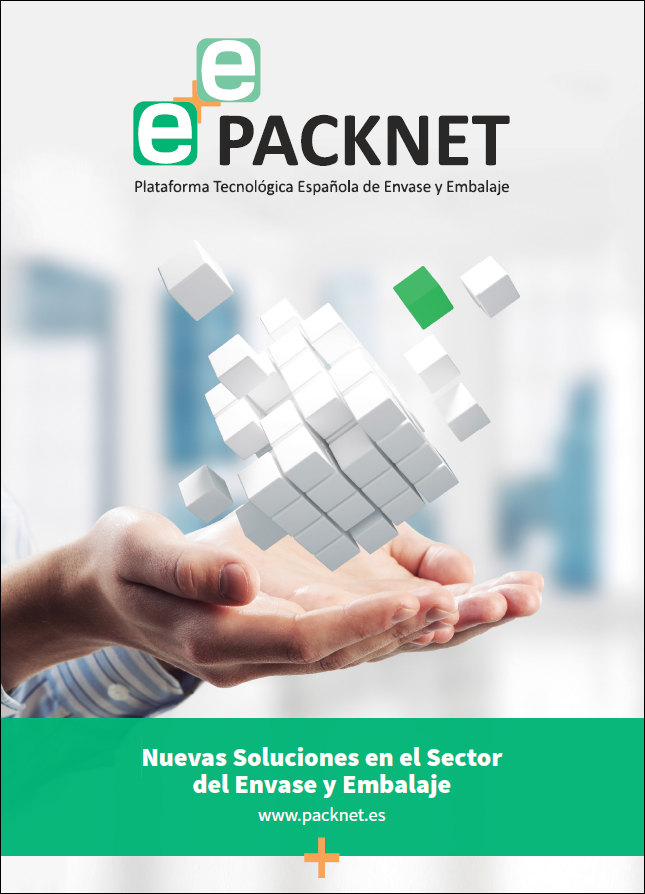News Items - International Association of Packaging Research Institutes
| PACKNET, Spain: multidisciplinary innovation Twelve years on from its creation, this packaging technology platform reinforces the links between R&D, innovation and industry, with a focus on medium-to-long-term strategies. PACKNET, the Spanish Packaging Technology Platform, was formed as a non-profit association and public-private structure led by industry in 2009. It brings together participants in what director Maria Belén García describes as the “science-technology-innovation system” to identify and prioritize technological needs and define medium- and long-term research, development and innovation (R&D+I) strategies.  The main objective, she states, is to harness scientific and technological developments “in order to ensure the competitiveness, sustainability and growth of the Spanish packaging industry”. “Our specific goals are to: stimulate and promote the exchange of knowledge and its dissemination; encourage public-private collaboration; accelerate and promote the application by business of the results achieved in R&D activities; contribute to the identification of R&D needs in the packaging sector, and guide them to solve society’s challenges,” she adds. The main objective, she states, is to harness scientific and technological developments “in order to ensure the competitiveness, sustainability and growth of the Spanish packaging industry”. “Our specific goals are to: stimulate and promote the exchange of knowledge and its dissemination; encourage public-private collaboration; accelerate and promote the application by business of the results achieved in R&D activities; contribute to the identification of R&D needs in the packaging sector, and guide them to solve society’s challenges,” she adds.García also describes the platform as “an open forum of multidisciplinary work led by companies and the respective business associations of the sector”. It counts on the additional support of technology centers, research organizations, universities and independent professionals, she says. Longstanding IAPRI member ITENE plays a prominent role in PACKNET. Since the platform’s programs are harmonized with the Spain’s National Plan for Scientific and Technological Research and Innovation, it is part-funded by the Spanish Ministry of Science and Innovation. With over 100 current members up and down the entire packaging value chain, PACKNET’s remaining funding comes from membership payments. At the core of PACKNET’s operations are a series of Working Groups (WGs) spanning the following topics: regulatory; sustainability; training and academia; biodegradable materials; international links; consumer dialogue; and auxiliary packaging elements. An important part of the platform’s mission is to reinforce the work of these WGs through technical conferences, workshops, expert panels, and so on. There are also inter-platform WGs with organizations in areas such as food and drink. “The platform provides different services to its members, including sending up-to-date information on the latest developments in the packaging sector, and on calls – of national and international scope – for R&D+I projects,” says García. Other services include searches for project partners, identifying different funding sources and maintaining contact with the relevant regional and national government departments in Spain. When it comes to international affiliations, the platform has signed Memoranda of Understanding with various organizations, including the Portugal-based Iberian Nanotechnology Laboratory and the Chamber of Commerce of Bogotá, Colombia. But PACKNET’s international dimension goes well beyond this. It is a member of the Packaging Chain Forum operated by EUROPEN (the European Organization for Packaging and the Environment). “Nowadays, our association is also involved in the managing committee of two COST Actions,” García says, explaining that COST is a European program of support for transnational co-operation and the promotion of initiatives among researchers, engineers and academics – from Europe and beyond. These two projects focus on rethinking packaging for circular and sustainable food chains, and cross-border strategies in the pursuit of zero waste. Additionally, of course, there is PACKNET’s membership of IAPRI. “Here, we are involved in different Working Groups: Active & Intelligent Packaging; Sustainable Packaging; and Distribution Packaging,” she says. “So, we have high expectations when it comes to our participation and to the exchange of technical knowledge.” Published: 09/29/21 |